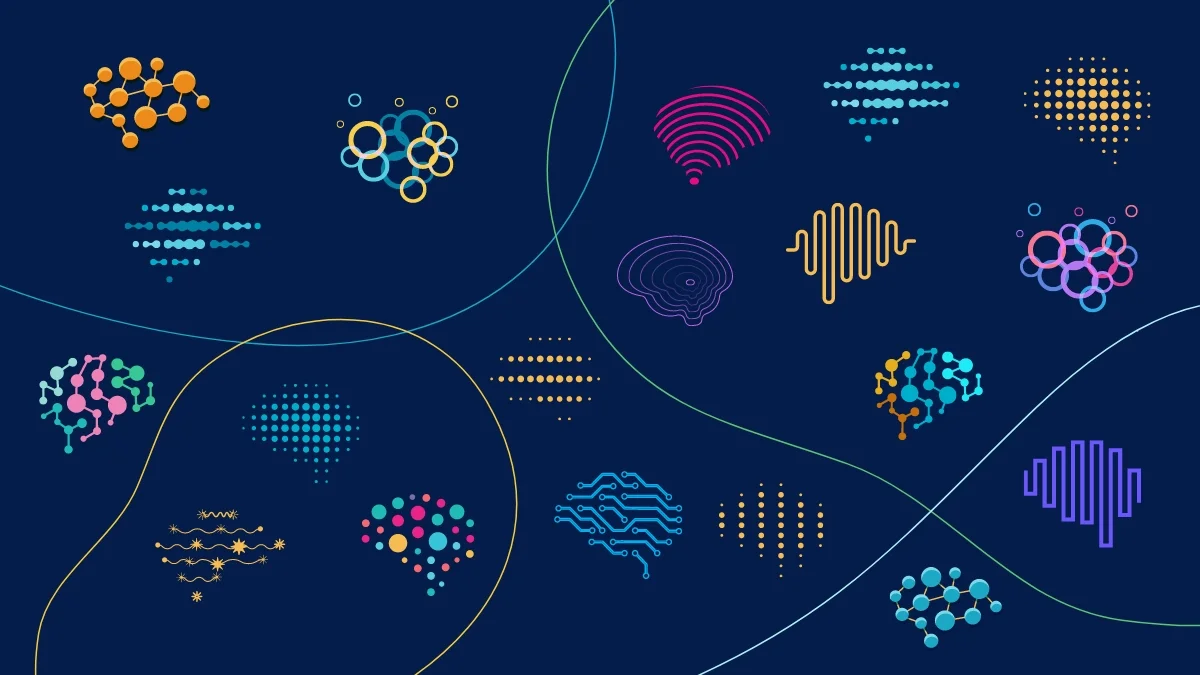The topic of today’s blog is artificial intelligence, a broad and complex field that’s difficult to define. So, to get more clarity on this topic, we turned straight to the source and got AI to weigh in. We asked it to define itself. Here’s what it said:
“AI stands for artificial intelligence, which refers to the development of computer systems that can perform tasks that typically require human intelligence, such as visual perception, speech recognition, decision-making, and language translation.”
That’s right; AI wrote that…
AI has become a booming industry, transforming various sectors of our world. Its influence is evident in e-commerce, transport, manufacturing, healthcare, education, media, and customer service. To help you stay ahead of the non-stop advancements in AI, we’ve collected the most exciting and new artificial intelligence trends.
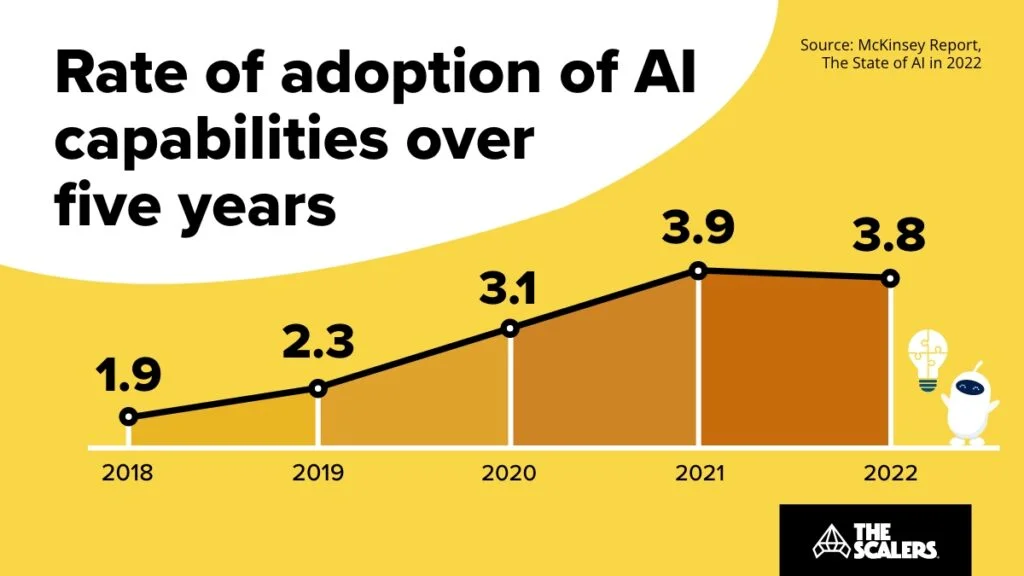
The impact of artificial intelligence is everywhere
In the last decade, there’s virtually no industry that digital transformation and modern AI haven’t already affected. Thanks to robust IoT connectivity and speedy computer processors, the amount of data collected and analysed daily has risen hugely. It’s safe to say that AI is everywhere. AI will transform our world in the years to come.

Take online shopping as an example. Have you ever thought about how an e-commerce app displays personalised recommendations every time you open it? The answer is artificial intelligence. An e-commerce platform’s AI algorithms track your transactions on the platform you use, as well as what you’ve viewed, clothes you’ve purchased, and the amount of time spent browsing.
Organisations store this data in a data record. This means, next time you see a cool denim jacket on your recommended items list, know that AI may have chosen it for you by analysing and processing your shopping behaviour. This is just the tip of the iceberg. E-commerce isn’t the only industry AI is revolutionising. The possibilities are endless.
AI trends on the rise
Regarding the rise of AI applications, we can expect continued progress in developing AI technologies and applications and see no downturn in sight. In combination with other digital transformation trends, the future of business looks bright.
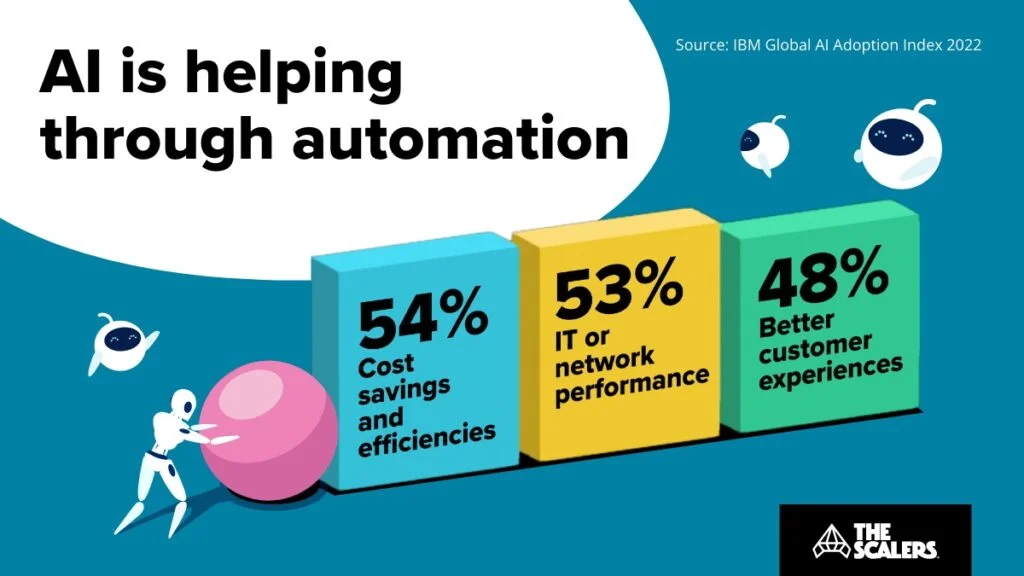
Here are some areas where we predict significant growth and advancement:
- Natural Language Processing (NLP)
NLP has already seen tremendous growth in recent years and now with ChatGPT we can expect this trend to continue. Other NLP advancements include AI capable of understanding, interpreting, and generating human language and providing chatbot functions, translation, speech recognition, and sentiment analysis, among other things.
- Computer Vision
Computer Vision is a field of computer science and artificial intelligence. It enables computers to interpret and understand visual data, such as images and videos. With the rise of edge computing and the increasing availability of data, computer vision is also likely to see significant growth in 2023.
- Generative AI
Generative AI is an exciting area that involves training machines to generate new content, such as images, music, or text. You might have seen it in some viral social media content of Godzilla in court or AI-generated social media avatars. In the near future, we can expect continued growth in this area as technology becomes more sophisticated.

in Bangalore
Speed up your software delivery with an integrated and dedicated team
LEARN MORE- Reinforcement Learning
Using reinforcement learning (RL), AI can learn through trial and error based on feedback from its surroundings. RL has been successfully applied to everything from games to robotics, and recommendation systems. This field is expected to grow in 2023.
- AI Ethics and Governance
Lately, we’ve seen a focus on AI ethics and governance. We can expect this trend to continue. This includes the development of standards and regulations, that ensure AI is used safely and beneficially for society.
These systems are challenging to train because the data they use often reflect the biases and prejudices of the individuals who collected or labelled them.
Let’s say you are training a facial recognition algorithm on a dataset of faces of a particular race or gender. This means, faces of other races or genders may not be accurately recognised.

Industries poised for significant growth thanks to AI
Artificial intelligence will change the way we do business and could lead to some really cool and creative ideas.
Here are a few of the latest emerging artificial intelligence trends:
- Healthcare
AI can help with diagnosis, personalised medicine, drug discovery, and optimise clinical trials. It also has the potential to improve healthcare quality by enabling faster, more accurate diagnoses, improving treatment planning, and reducing human error.
- Finance
Startups and stalwarts of the financial industry are investigating using AI to help with fraud detection, risk management, investment decision-making, and algorithmic trading. AI can also democratise access to financial services and promote financial inclusion while increasing efficiency and reducing costs for financial institutions.
- Manufacturing
AI can assist the manufacturing process by optimising production processes, improving quality control, and enabling predictive maintenance to reduce waste and increase productivity. It also creates new opportunities for skilled workers.
- Transportation
Autonomous vehicles are among the best-known ways AI has been applied. But in general transportation infrastructure, AI can also improve safety by monitoring roadways and enhancing logistics. It can also improve mobility and accessibility for all by reducing traffic congestion and pollution.
- Retail
In retail, AI can provide personalised recommendations, inventory optimisation, supply chain management, and customer service solutions. What’s more, personalised shopping experiences can help retailers better understand and meet customer needs and improve the sustainability of supply chains.
- Energy
AI can be used to predict maintenance, forecast demand, optimise renewable energy, and manage grids. To accomplish this, we need to accelerate the transition to renewable energy, reduce energy waste, and improve the efficiency and cost-effectiveness of energy management.
- Agriculture
By using artificial intelligence, farmers can increase crop yields and quality, reduce the environmental impact of farming, and improve their livelihoods.
- Education
Both students and teachers can benefit from AI through solutions to enable personalised learning, increase student engagement, and perform administrative tasks. These enhancements can lead to tailored learning experiences, better meeting the needs of individual students, enabling more efficient and effective administrative processes, and providing new opportunities for educators to innovate in their teaching methods.
These are just a few examples. With its ability to analyse vast amounts of data quickly and accurately, we’ve only just begun to scratch the surface of what this technology can achieve. As AI continues to evolve and become more sophisticated, we can expect to see even more exciting and transformative changes in the years ahead.
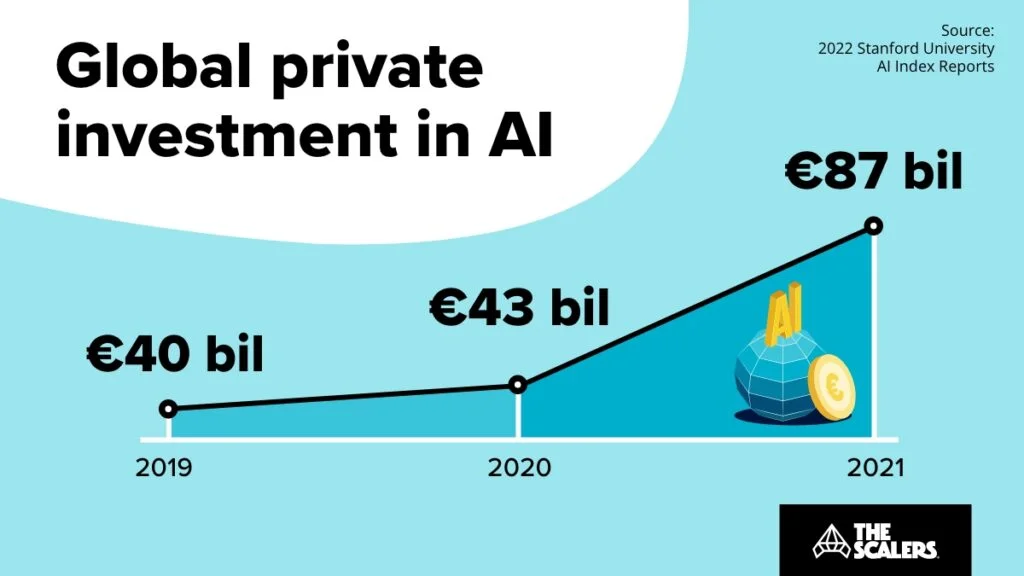
What are the IT giants doing In Artificial Intelligence?
Google, IBM, and Microsoft are the biggest players in the tech industry. They are leading the way in artificial intelligence because they have the resources to invest a great deal of time, money, and effort into its development.
Microsoft has been developing Cortana — an AI technology that helps users with everyday tasks. However, even more impactful might be their OpenAI chat models like GPT, which are making global headlines as a new and novel way we get and consume information.
And IBM has been developing an application called Watson which provides answers, understands natural language, and gives the user in-depth feedback. Meanwhile, Google’s DeepMind program has achieved incredible feats in gaming and healthcare by pushing the boundaries of AI. What’s more, Google just announced BARD — its answer to ChatGPT.
As these tech giants continue to make strides in AI, the future looks bright, and we can expect to see more exciting developments. With companies spending nearly billions of dollars on AI products and services annually, big things are bound to happen.


Will AI invent new jobs and empower existing ones?
AI is increasing efficiency, reducing costs, and creating new opportunities. While this is revolutionary, it also threatens to displace some jobs. As its use becomes more widespread, we will need more robust cybersecurity tools to guard us against its potential dangers.
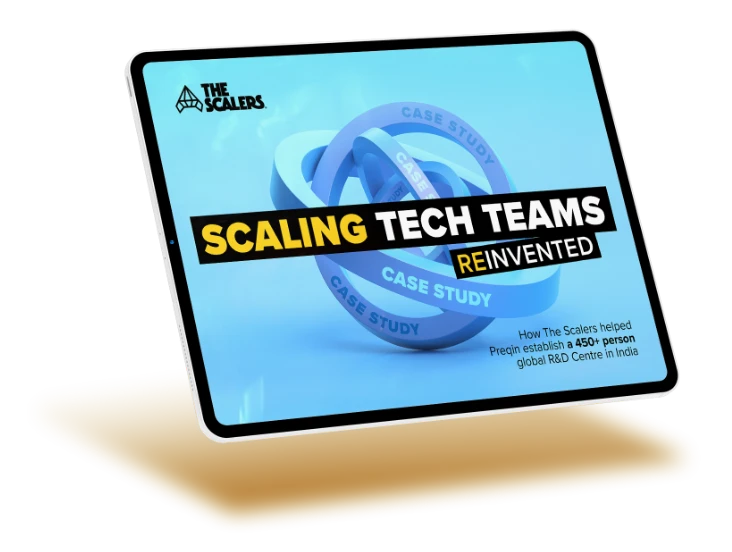
How we helped Preqin establish a 450+ person global R&D centre in India
DOWNLOAD CASE STUDYNevertheless, while AI may displace some jobs, it also has the potential to create new jobs and empower existing ones. For example, AI can help employees work better, such as a customer service executive getting instant intelligence on a caller’s needs.
In his book “21 Lessons For The 21st Century,” Yuval Noah Harari talks about how AI will create new jobs that never existed before to maintain AI technology.
Look at it this way — what if a sales representative can focus on building a relationship with the highest quality leads thanks to AI’s deep insights from the latest data, social media and industry news?
Similarly, a healthcare professional can better diagnose a patient by accessing an AI-compiled database of people with similar symptoms worldwide. Apart from helping existing businesses, AI also creates scope for new ones.

In conclusion
Overall, we can expect continued growth and innovation in AI, with new applications and technologies emerging as it becomes more and more sophisticated. We expect to see significant progress in developing AI technologies and applications.
Are you looking to build a team of competent software engineers with modern AI expertise for implementing artificial intelligence in your products and services? Look no further than The Scalers. We have engineers and AI specialists proficient in Python, Golang, R, and other relevant programming languages. Contact us today by filling out the form, and one of our senior executives will provide you with a free consultation!






